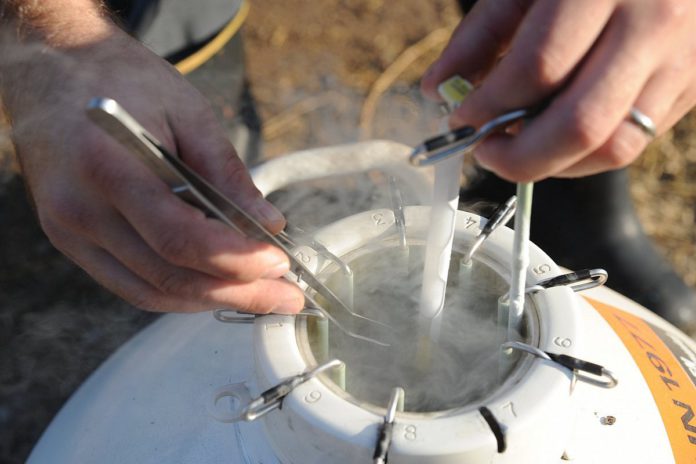A group of international researchers are led to believe, following discoveries made in recent research, that the re-emergence of the bluetongue virus in livestock was caused by human error.
From their findings, they hypothesise that the outbreak has come from “accidental exposure of livestock to frozen material contaminated with virus from approximately 2008″.
Bluetongue virus
The bluetongue virus emerged in livestock in northern Europe in 2006 and eventually spread to most European countries by 2009, resulting in losses of billions of euros.
Bluetongue virus (BTV) is transmitted by arthropod bites, such as midges, and affects cattle, goats, sheep and other camelids such as llamas. It does not affect people or food safety however, but outbreaks of the virus can result in restrictions on livestock movement and trade.
The virus can reduce milk yield and cause infertility, and in the most severe cases is fatal for infected livestock.
The outbreak was successfully controlled with the use of vaccines by early 2010, but a closely related strain emerged in France in 2015 and this outbreak is still ongoing.
Frozen bull semen
Researchers from the University of Glasgow have been running evaluations of the two strains of the virus to see how closely related they are.
They found that the ancestor of the second outbreak dates from the height of the first outbreak in 2008, suggesting that it had not been replicating for many years and therefore must have been frozen for a period and exposed to animals via frozen material.
The team of researchers have argued that the most plausible scenario is that the virus resurfaced from frozen bull semen samples.
Professor Massimo Palmarini, one of the senior authors of the study, explained: “In order to survive, to be transmitted and to find new hosts, viruses need to replicate. New mutations are an inevitable consequence of this, so viruses can’t remain ‘frozen in time.”
“While there is still lots for us to learn about virus biology, the most plausible explanation for our findings is that exposure to infectious material, stored from the earlier outbreak, caused the most recent emergence of this virus in Europe.”





